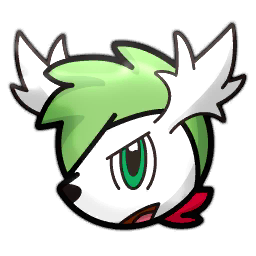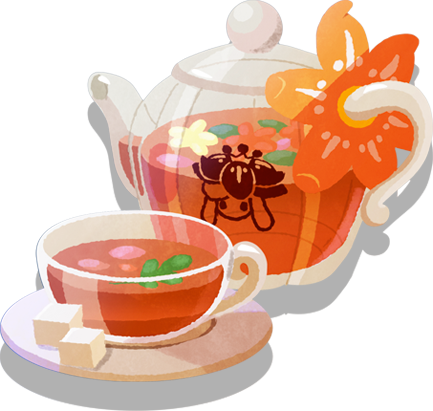- Partners
-
redundancies
o.
o.
The Guildmaster’s fond of saying that it’s never one mistake that kills you. To hear her talk, it’s nothing more or less than your entire life that does it. Who you are and what you’re like, a series of choices that knock and collide until they bring you to the final point.
In that sense, it’s inevitable.
Maybe thinking like that comforts her, eases her guilt when something does go wrong. You used to think she was full of it. But now—you think, perhaps, she was right.
i.
You chose the mission. Tore it off the bulletin board, marched into your shared quarters and unfurled it like a flag.
“We’ll make Silver with this,” you said.
Nerry read it slowly, while you amused yourself by snapping your tongue in and out.
“Silver Marsh,” he said at last. “That’s too hard for us.”
“It’s a marsh; I’m a water-type. We can handle it.”
You don’t think you convinced him, not truly. But conversations with Nerry are a matter of attrition. It went the way it has always gone: you said that you were going and he came too.
ii.
“I’m hungry.”
Nerry’s voice is hushed, half-apologetic. You’ve just come through the sixth stairway. You resist looking back: the thing behind you won’t be a stairway any longer. You don’t last long as an explorer unless you make peace with that illusion.
“We’re almost there,” you say. “Have an apple.”
“No more apples. And no berries.” He shakes the bag forlornly. “I looked.”
“We brought seven. One for each floor. We’ve only had four.”
His horns droop. “There’s none left, Kay. I think we should go back.”
“No,” you say loudly. The wet air sucks in your voice and dampens it. “It’s fine. Come on.”
iii.
Three rooms later, you hit a monster house. You can sense it the moment you step inside: behind you, something is severed, disjointed. Ahead, there are a dozen gleaming eyes. You’re hit, as always, with the illusion of equilibrium. Maybe if you stayed motionless, so would they. Maybe it could go on like that forever.
You’ve never waited long enough to find out, and you don’t this time, either. Your water pulse shoots through the darkness. Everything spills into motion.
You see better than most in the dark. You weave between two lombre, knocking them back with short bursts of water, coming in close with your tail while they are disoriented. The moist air is invigorating. You could do this for a very long time.
“Kay!”
You finish with the lombres and turn to find Nerry cornered. For once, you're too slow: by the time you reach him, he’s fallen on the ground.
iv.
“Okay,” you say. Your voice is wonderfully calm. “You’re hurt and we don’t have berries. You won’t make it through, so you have to go back. But I can finish it. There’s just a little bit left.”
“Don’t do this.”
“It’ll be for the best. You’ll see.”
He tries to argue some more, but you are firm. In the end, he hugs you and says, “Take care, Kay.” The rescue badge flares white and yellow. He’s gone.
You begin to walk. The waterlogged earth is pleasant against your feet. The next room is empty, and your spirits rise. You begin to hum. From habit, you reach up to fiddle with the badge around your neck.
And that is when you understand your last mistake.
v.
Panic, in your experience, is a varied sensation. Bright and stabbing sometimes, sometimes still and cold. You begin to pat along the ground. The cord around your neck was made from tangela sinew. A cord like that doesn’t snap without warning. That’s a fact, and it doesn’t change the other fact: your neck is bare and the ground is empty.
You backtrack, even though it isn’t pleasant. The layout doesn’t change, but the rooms do. You go anyway. Something flashes in the corner of your eye, but when you come closer you see that it is just a strangely luminescent moss, pulsing neon green in the murky light.
Your panic turns hotter. You need to think.
There are stories about explorers who lost their badges. Those stories tend to be brief and uniform in their endings.
Your options, then. Reaching the end won’t help, not with your badge gone. You might get there, but you wouldn’t realize it. The distortions that bridge the outside world are only observable with the psychic assistance of the badge. Going forward isn’t any better than going back.
Stay put. That’s the protocol, as if you’re a child left behind in a crowded square. Stay put and wait for rescue. Nerry will know something is wrong after a few hours if you don’t show. A gold team could clear this dungeon in less than three hours, you’re sure. Five hours, you decide. The number may be arbitrary, but it grants you the illusion of control.
vi.
For the first hour, you’re on edge. Every shift in the flow of the water has you tasting the air with your tongue, but nothing enters the room and nothing leaves it. The stasis slowly draws you into a stupor. You curl up behind a clump of reeds.
There’s not much else to do, so you think about the past. You think of Nerry, your protector and your playground, your friendly giant. You climbed him and hid behind him and rode between his horns.
You told him, cloaking your nervousness with bold assurance, that the two of you would be explorers, the best in the world, and your heart nearly burst when he met your gaze and gave a solemn nod.
You applied together, a ridiculous pair. One dopey heracross, one wide-eyed sobble. Nerry carried the combat admission test, while you handled the oral examinations. You always complemented each other in that way.
Because Nerry was slow. He counted slowly during hide and seek, slow enough that you always had time to find places he could never find. Growing up, you never minded his slowness. In fact, it comforted you. On restless nights you tallied it up: Nerry knocking back your playground tormentors with his horns, you explaining to him the convoluted rules of sticks and apricorns. It balanced. You slept well.
Nerry was slow. When did it start to bother you?
vii.
Time is hard to track here. But some time must have passed, because the darkness begins to relent. You can make out more and more of your surroundings: the sleek growths of reeds, the shoots of blue iris, poking up like paint brushes, the golden moss. It’s beautiful.
The feeling crept up over time, you suppose, like dusk or like dawn, but the first time you put a name to it was shortly after your evolution.
Evolution—that marvelous day. It was like being born again, being born better. Your body had always been an awkward, stubby thing. You moved and fought in spite of it. No longer. Simple movements became delightful. You spent long hours in the training room, continued even after Nerry shuffled over to the benches to rest.
It occurred to you, then, that another evolution lay in your future, but that Nerry would never evolve. This was all he would ever be.
Yes. That was when it started.
viii.
Maybe nothing would have come of it, except that one evening as you were leaving the training rooms, you caught voices. You could have kept going when you realized the conversation was private, but you didn’t do that. You stayed put.
It was Team No. 134, the Dungeon Skaters. They were silver rank, but everyone said they’d hit gold in another year. You’d collaborated with them once as part of the mentorship program and been struck by their professionalism, their silent teamwork.
It was Magary speaking, the vaporeon. “I don’t want to let the team down,” she was saying. “But it’s been two months since I told you. I can’t put off the move forever.”
“We know. It’s just so hard to find a replacement. Everyone suitable’s already been paired. Can you wait a little longer, until the newest wave of bronzes come up?”
That’s how you learned that the Dungeon Skaters needed a new team-mate, and not just that—a water-type. The thought ate away at you as you slowed your pace each morning to match Nerry’s, bit back your frustrated remarks. You saw two futures, two paths. One, slow and plodding, with Nerry at your side. Making silver, but likely never gold. Or—a path that led steeply upwards.
The choice was easy; the only issue was the execution.
Completing a mission in Silver Marsh would elevate your ranks, if you finished. If you finished, but Nerry didn’t, you’d move up and he wouldn’t. It wouldn't be hard to arrange. You handled the packing; you were the one who brought off the nick-of-time rescues. All you had to do was be a bit too slow. The split wouldn’t be anything personal. He’d have to understand that.
You weren’t children any longer. And Nerry, dear Nerry, was redundant.
ix.
At this point it dawns on you that you aren’t in a room anymore. You’re not sure how you could have ever made that mistake. There aren’t walls, passages, or entrances here. The marshland stretches out around you, uncontained. Within it, the fog gathers and disperses, an endless canvas of swirling rivulets.
A memory returns to you. A new kid in town, a marill. She sought you out for swims, showed you secret dips in the creeks and ponds. You remember Nerry waiting by the bank as you played, standing there for hours, his eyes never leaving you.
Once, you tired of this constant observation. You swam to the bottom and waited, until five minutes became an hour. The bottom of the pond swirled with silt and mud, but as you crouched there, the sediment settled. The water was a clear and riotous turquoise. Light from above performed acrobatics for your entertainment. At long last you surfaced, pleased with yourself.
Nerry was there. His bulbous yellow eyes locked onto yours.
“It’s late,” he said in a tone you couldn’t read at all.
You avoided his gaze, caught-out, ashamed, and something else, a feeling you never named because it had never made any sense to feel.
You feel it now.
x.
The fog is starting to clear. You look up, expecting to see the sun—because it’s bright in here now, so bright your eyes are beginning to sting—but there’s nothing in the sky.
He’d hugged you, hadn’t he? His claws had scraped lightly against your neck.
As a sobble, you’d coveted those claws. You’d wanted his sleek armor, his sharp edges—you wore them so much better.
What had he wanted? He’d never said, but you suppose you’ve always known. The marill’s family had left a few months after they came. No one had explained why, but Mother had told you afterward to stick close to the house and not to wander.
The marsh is far too bright. You push your face into the soft earth to shield your eyes from its brilliance. You are thinking about stairways, thinking about the need to believe that one thing leads to another, explains it. But they aren’t really stairways. Maybe there aren’t really choices, either.
“Take care,” he’d said, and his claws had scraped against your neck.
The rescue won’t be coming. So you lift your eyes again. It’s still terribly bright, but you don’t mind so much anymore. And you see now where the light’s coming from.
Yes. You see it all.
Last edited:


